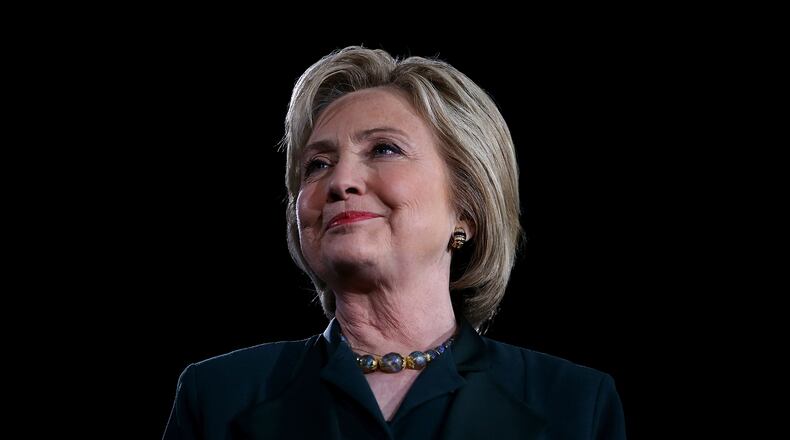Democratic presidential nominee Hillary Clinton said on Sunday that her statements about emails she sent from a personal email account and server while she served as secretary of state have been consistent and truthful – and she claimed FBI Director James Comey agreed with her.
During an appearance over the weekend on "Fox News Sunday," host Chris Wallace played clips of Clinton's public comments, in which she emphasized that she never sent or received classified information on the email account.
"After a long investigation, FBI Director James Comey said none of those things that you told the American public were true," Wallace said.
Clinton responded, "Chris, that's not what I heard Director Comey say."
She thanked Wallace before saying, "Director Comey said my answers were truthful, and what I've said is consistent with what I have told the American people -- that there were decisions discussed and made to classify retroactively certain of the emails."
That statement struck some people – notably Wallace – as not quite correct.
So did Comey confirm that Clinton has been consistent and truthful about her emails?
No, he didn't.
Clinton appeared to be referencing a July 7 congressional hearing over her emails, in which Comey said, "We have no basis to conclude she lied to the FBI."
However, with that statement, Comey was referring only to the closed-door interview between investigators and Clinton.
At that July 7 hearing, Rep. Jason Chaffetz, R-Utah, asked point-blank whether Clinton lied to the public about the email scandal.
"That's a question I'm not qualified to answer," Comey said. "I can speak about what she said to the FBI."
During a news conference on July 5, Comey directly contradicted Clinton's claim that none of her emails contained classified information.
Among the 30,000 emails reviewed by the State Department, 110 in 52 email chains were determined to have had classified information in them at the time they were sent or received. Eight of those contained information deemed top secret.
In addition, 2,000 emails were classified after they were sent, Comey said.
Investigators found three other classified emails that had not been submitted to the State Department, although Comey said it did not appear the emails were deleted in an attempt to hide them.
"Although we did not find clear evidence that Secretary Clinton, or her colleagues, intended to violate laws governing the handling of classified information, there is evidence that they were extremely careless in their handling of very sensitive, highly classified information," Comey said.
"For example, seven e-mail chains concern matters that were classified at the top secret/special access program level when they were sent and received. These chains involved Secretary Clinton both sending emails about those matters and receiving emails from others about the same matters. There is evidence to support a conclusion that any reasonable person in Secretary Clinton's position, or in the position of those government employees with whom she was corresponding about these matters, should have known that an unclassified system was no place for that conversation."
Comey went on to suggest that no charges be filed against Clinton for the emails, because investigators found no evidence that Clinton willfully mishandled classified information.
About the Author
The Latest
Featured


